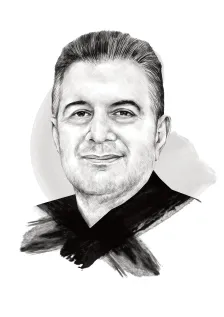As I wandered the familiar streets of Beirut, seeking to reconnect with my loved ones after a prolonged absence, I was met with a city grappling to adapt to its agony.
There remained a sense of determination that this place would not succumb to its own struggles, despite being battered by a half-century of traumatic setbacks.
Despite the devaluation of currency and meagre salaries, cafes, supermarkets, and malls are swarming with people, and traffic on the roads remains congested despite the exorbitant cost of gasoline.
But the signs that it has got much worse are clear in the extent of division and discord among the Lebanese people, now palpable in every aspect of daily life.
The topic of Syrian refugees remains a contentious issue, with Lebanese politicians masterfully playing the blame game and denying their responsibility and historical contribution to the problem. The country’s leaders have not just failed to act — some may also be benefiting from the chaos in their own ways.
Read more: Syrian refugees: A convenient scapegoat for Lebanon’s failures
The mainstream media highlights the disturbing discord spreading among the Lebanese people. It is even more distressing on social media, where enraged citizens, hateful individuals, and show-offs flaunt their ignorant views, for which there seems to be no cure.
Social inequality is evident in hospitals, where the grip of this madness is at its most gruesome, as well as in medical and pharmaceutical laboratories.
Read more: In Lebanon, the price of gas ‘fuels’ isolation and empties streets
Disturbingly, hospitals are now a luxury afforded only by the wealthy, with the head of the Syndicate of Hospital Owners admitting that half of the Lebanese population lacks access to healthcare.




